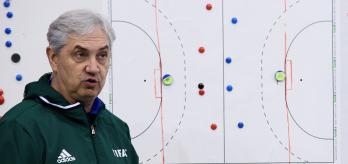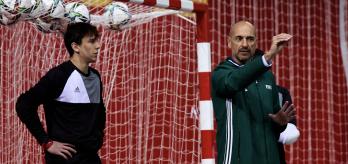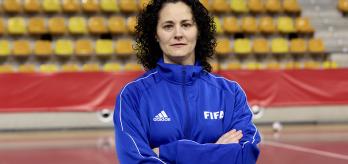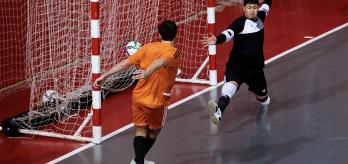López served as head coach of the Spanish national futsal team for 11 years (2007-2018), during which time he led La Roja to four European Championship crowns and twice masterminded second-placed finishes at the FIFA Futsal World Cup™.
Watch interview
Read interview summary
Part 1: Spanish FA’s futsal philosophy
In the opening section of the interview, López provides an insight into the RFEF’s futsal philosophy, emphasising how the association has sought to instil a methodology that optimises player performance. He goes on to talk about the Spanish FA’s efforts to ensure that training exercises replicate real-game scenarios as much as possible. The Bilbao-born tactician closes the first part of the interview by underscoring the importance that players develop game understanding, while stressing that training sessions should provide them with the opportunity to engage in critical thinking.
Part 2: Coaching objectives and futsal’s influence
López opens the second part of the interview by offering his views on the key objectives pursued when coaching players. He states the importance of developing players’ speed of thought, a skill that he suggests enhances their ability to problem-solve in a range of in-game scenarios. The futsal specialist comments that in order to speed up decision-making, players are required to master individual tactics, including body orientation.
The former Spain coach then discusses the positive impact that playing futsal can have on football players. He cites the example of Brazilian football, where as early as the 1950s and 1960s, youth players typically played both futsal and football in a twin-tracking system. He also comments on how futsal has influenced football training drills, with reduced playing areas and player numbers serving to increase player involvement in sessions.
Part 3: Characteristics of Spanish national-team players
In the final part of the interview, López outlines the key qualities required of a Spanish player who harbours ambitions of being called up to the national team. He comments that game understanding is just as important as a player’s mastery of technical skills, with decision-making and the ability to read the game cited as essential considerations. López notes that these cognitive skills enable players to adjust to various playing systems, allowing them to adapt from the style of play in place at their club to the blueprint deployed at national-team level.

















